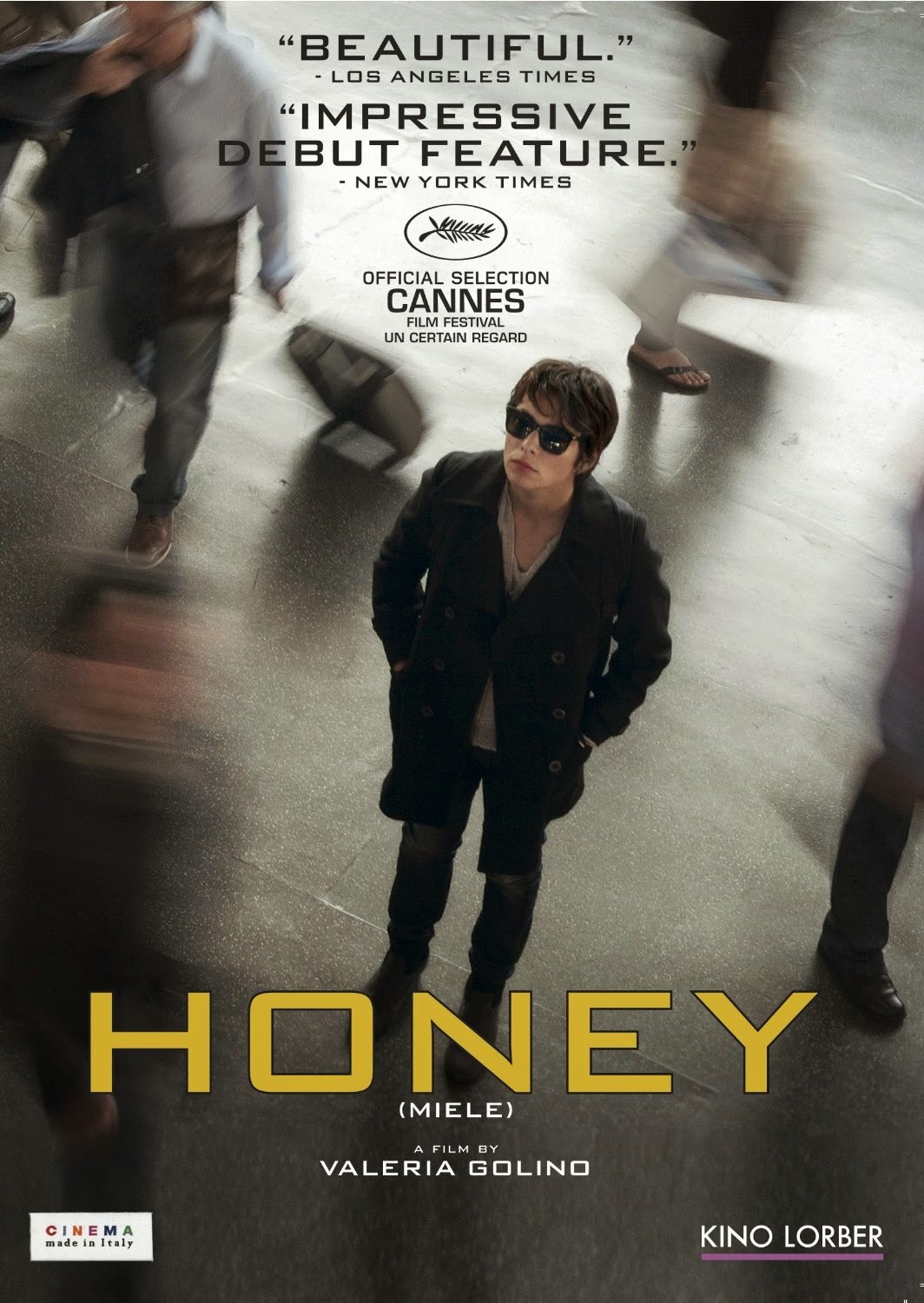- Details
-
Parent Category: Film and the Arts
-
Category: Reviews
-
Published on Tuesday, 06 January 2015 21:26
-
Written by Kevin Filipski
Elsa & Fred
(Millennium)
In a closely-fought battle between saccharine and star power, the former ekes out a victory against Oscar winning vets Shirley MacLaine and Christopher Plummer, who play an elderly couple who try and enjoy their unlikely romance despite her flights of fancy and his unceasing dourness.
Director Michael Radford, who has remade 2005's Elsa y Fred from Argentina, displays his usual professionalism, but a treacly finale set in Rome that reenacts La Dolce Vita's famous Trevi fountain sequence, defeats him and his still-glamorous stars. The movie looks first-rate on Blu-ray; lone extra is a making-of featurette.
Horns
(Anchor Bay/Radius-TWC)
I don't know Joe Hill's underlying novel, but Alexandre Aja's crass adaptation turns a decent story—a young man accused of his girlfriend's murder grows horns, causing all he meets to confess hidden desires or secrets—into a hackneyed melodrama that relentlessly hammers home its obvious symbolism.
Daniel Radcliffe is intensely committed in the lead, but even he can't find much meat on the bones of a metaphor that, exhausting itself after 45 minutes, spins in place for the rest of its repetitive two hours, padded with things like a ludicrous, homophobic subplot about two closeted cops. The Blu-ray image looks excellent; lone extra is a making-of.
(Kino Lorber/Visit Films)
In Tim Sutton's moody character study, a blues musician whose creativity has stagnated drifts around Memphis in an attempt to reconnect with his muses, even if it seems like no matter what he tries or whom he deals with, his personal and professional lives remain maddeningly out of reach.
Although it's exceedingly slow, there's a surfeit of atmosphere in this impressionistic musical portrait that's dominates by Willis Earl Beal's magnetic performance. The hi-def transfer is outstanding; extras include a deleted scene and interviews.
(Millennium)
Cornball in the extreme, this would-be inspirational drama about a self-help author unable to remain anonymous and a cross-section of famous and ordinary people his words help is so disjointed and filled with sleep-walking actors from Sylvester Stallone and Kira Sedgwick to Danny Aiello and Tom Berenger that it falls completely flat.
Writer-director John Herzfeld—who once made the oddly entertaining ensemble film, Two Days in the Valley—does nothing right this time, and the desperation of everyone involved is seen in every frame. The hi-def transfer looks good.
Divine Madness
(Warner Archive)
Director Michael Ritchie—who was at the tail end of his cinematic prime (The Candidate, Smile, The Bad News Bears, Semi-Tough)—filmed Bette Midler's 1979 Pasadena shows for posterity, with the great William A. Fraker as his cinematographer, and the result is an enteraining time capsule of an unabashed diva in her own prime.
Midler tells as many dirty jokes and stories as she sings her songs, even if she does show off her impressive pipes on "The Rose" (then a brand-new tune); too bad that the DVD version omits two songs from the original concert film.
(Kino Lorber)
Actress Valeria Golino makes an auspicious directorial debut with this engrossing character study about a free-spirited Italian college student Irene who regularly smuggles drugs from Mexico (via California) to help perform assisted suicides under the pseudonym "Honey."
With a powerful performance by Jasmine Trinca in the deceptively difficult title role, Golino has made a strong, intelligent drama that would be an impressive achievement for any director, let alone a first-timer.
(First Run)
The deeply personal story follows Clark Wang, a man whose terminal illness prods him to explore the green burial movement in order to use his upcoming death as a way to help preserve the environment.
Directors Amy Browne, Jeremy Kaplan, Tony Hale and Brian Wilson, along with Clark and his partner Jane, have made a compelling documentary that's rich in humanity and hope, sadness and humor. Extras include extended, deleted and follow-up scenes.
Anne Akiko Meyers—The American Masters
(e one)
With this welcome sort-of sequel to her American Album,violinist Anne Akiko Meyers again displays her endless versatility and virtuosity in three very different works by Samuel Barber, Barber's student John Corigliano, and Corigliano's student Mason Bates.
Barber's glorious 1939 Violin Concerto has rarely sounded so of a piece, Corigliano's lovely 2010 Lullaby for Natalie (Meyers' first-born daughter) receives a heartfelt reading, and Bates' inventive 2012 Violin Concerto gives the soloist an extended technical workout: she passes all three tests with flying colors, complemented by Leonard Slatkin's sensitive conducting of the London Symphony Orchestra. Barber may be the lone "American Master" among this composing trio, but this album provides incontrovertible evidence that Meyers also deserves that title.
Nicola Benedetti—Homecoming, A Scottish Fantasy
(Decca)
This followup to Italia, which explored her Italian musical roots, finds violinist Nicola Benedetti reveling in the richness of her Scottish heritage, beginning with Max Bruch's Scottish Fantasy, a concerto in all but name that spins lilting melodies and singing violin lines from a bottomless well of Scottish folk song and Robert Burns tunes.
It's no surprise that Benedetti is also an unabashed Burns lover; the rest of the disc comprises Burns and folk settings for varying instrumentation, from small ensembles to the BBC Scottish Symphony Orchestra, led by Rory Macdonald. Throughout, the constant is Benedetti's miraculous musicianship: while, as a bonus, her disc notes show that she's also a wonderfully evocative writer.


























